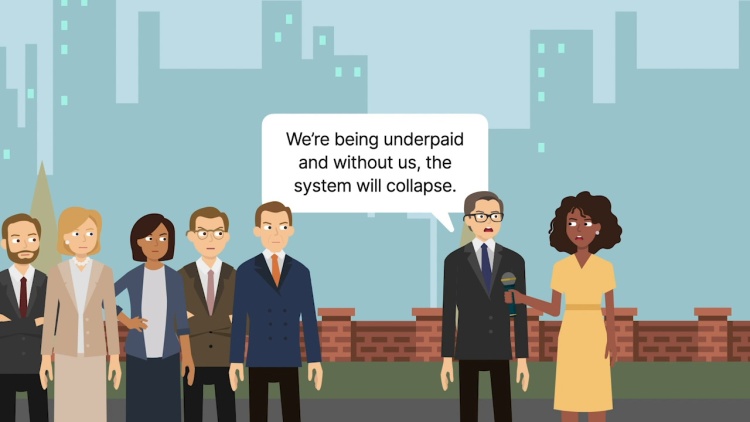Federal Trade Commission v. Superior Court Trial Lawyers Association
United States Supreme Court
493 U.S. 411, 110 S.Ct. 768, 107 L.Ed.2d 851 (1990)
- Written by Nicholas Decoster, JD
Facts
In the District of Columbia (the District), the difficult task of finding competent legal counsel for insolvent defendants led to the passage of the District of Columbia Criminal Justice Act (CJA). The CJA authorized the District to appoint and compensate lawyers to represent insolvent defendants in criminal cases. Although over 1,200 lawyers registered as CJA lawyers, only around 100 CJA lawyers regularly accepted cases. After failing to secure a pay raise, the CJA lawyers voted at a meeting of the Superior Court Trial Lawyers Association (SCTLA) (defendant) to form a strike committee, which determined that a boycott against taking new clients was the only way to obtain the raise. The regular CJA lawyers met and agreed not to take any new cases after a specified date unless the pay-raise demands were met. The CJA lawyers also began reaching out to the media to help publicize the issue. After the boycott commenced, the District issued a pay raise to avoid a crisis. The Federal Trade Commission (FTC) (plaintiff) brought a complaint against SCTLA, alleging that the boycott was a per se antitrust violation of § 5 of the FTC Act, 15 U.S.C. § 45, and § 1 of the Sherman Act, 15 U.S.C. § 1. The court of appeals vacated the FTC order, holding that the boycott contained an expressive component, involving a political message, that made application of the per se rule inappropriate under the First Amendment. The court of appeals concluded the expressive boycott was unlawful only if the boycotting group possessed significant market power. The FTC appealed, arguing that no market-power analysis was necessary and that a group boycott aimed at manipulating prices was per se unlawful.
Rule of Law
Issue
Holding and Reasoning (Stevens, J.)
Dissent (Brennan, J.)
What to do next…
Here's why 904,000 law students have relied on our case briefs:
- Written by law professors and practitioners, not other law students. 47,100 briefs, keyed to 995 casebooks. Top-notch customer support.
- The right amount of information, includes the facts, issues, rule of law, holding and reasoning, and any concurrences and dissents.
- Access in your classes, works on your mobile and tablet. Massive library of related video lessons and high quality multiple-choice questions.
- Easy to use, uniform format for every case brief. Written in plain English, not in legalese. Our briefs summarize and simplify; they don’t just repeat the court’s language.





